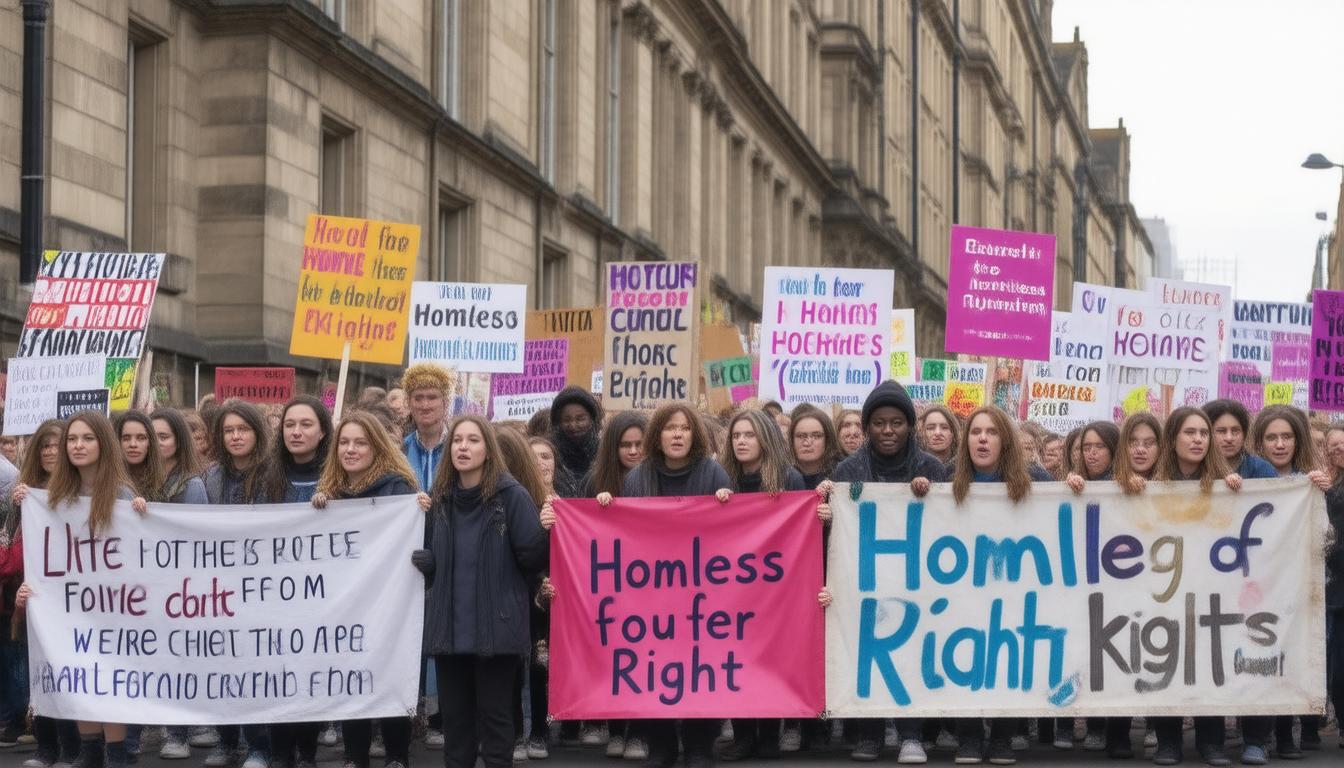In a significant development within Scotland’s housing landscape, Shelter Scotland has voiced immediate concerns regarding the Edinburgh City Council’s approach to homelessness policies, leading to calls for a change in leadership. The charity has accused the council of compromising the rights of homeless individuals, particularly in relation to the use of unlicensed houses in multiple occupation (HMOs) as temporary accommodations for families in need.
This controversy has emerged from a recent housing committee meeting where proposals were put forward to suspend certain housing rights until 2028, including the use of unlicensed HMOs, which Shelter Scotland claims is tantamount to legitimizing unacceptable practices. As Edinburgh grapples with the second-highest homelessness rate in Scotland, Shelter Scotland’s unprecedented demand for leadership change signals a deep-seated frustration over perceived failures to uphold legal and moral standards in addressing homelessness.
Key Takeaways
- Shelter Scotland is demanding a change in Edinburgh’s council leadership over concerns about homelessness policy practices.
- The charity accuses the council of violating the rights of homeless individuals by utilizing unlicensed housing accommodations.
- Despite the council’s claims of increasing support for vulnerable individuals, the proposed policy changes have sparked significant outrage from Shelter Scotland.
Background on Edinburgh’s Homelessness Policies
In a deepening crisis regarding homelessness in Edinburgh, Shelter Scotland has taken the unprecedented step of demanding the removal of the leadership of Edinburgh City Council due to their controversial management of homelessness policies. The charity has accused the council of undermining the rights of homeless individuals by resorting to the use of unlicensed houses in multiple occupation (HMOs) as temporary accommodations. This claim has escalated following a recent housing committee meeting in which council members voted to suspend existing housing rights until March
2028. Among the proposals discussed were efforts to relax restrictions on the use of unlicensed HMOs and to reintroduce local connection requirements, which would complicate the initial assessment of homelessness cases.
Shelter Scotland’s director, Alison Watson, expressed significant concern over these actions, describing them as a violation of the fundamental rights of vulnerable individuals. ‘The council is attempting to legitimize practices that are both illegal and detrimental to the welfare of homeless families,’ she stated. In contrast, the council asserts that their intentions are to enhance their capacity to support those facing homelessness, claiming that no definitive decisions were made to alter legislative standards at the meeting. Despite these assurances, the current situation reflects a crisis in confidence in the council’s ability to manage homelessness, as Edinburgh continues to grapple with the second-highest homelessness rates in Scotland, leaving many families in unsuitable temporary housing (Shelter Scotland, 2024).
This ongoing conflict underscores the urgent need for a reevaluation of homelessness strategies in Edinburgh, where the stakes for vulnerable populations remain exceedingly high.
Shelter Scotland’s Response and Call for Change
The situation raises critical questions about the adequacy of current policies in addressing the homelessness crisis in Edinburgh and highlights the growing tension between municipal authorities and advocacy organizations. Shelter Scotland has emphasized the importance of ensuring that all homeless individuals are treated with dignity and respect, and they are calling for a comprehensive review of the homelessness framework. In response to the criticism, Edinburgh City Council has stated they are committed to working collaboratively with various stakeholders to formulate effective solutions. They pointed out that any proposed changes are intended to enhance support systems rather than hinder individuals seeking assistance. However, this conflict has sparked a wider debate about the ethical implications of housing policies and the safeguarding of human rights for the most vulnerable members of society. As the winter months approach, the urgency of addressing these issues only intensifies, with many concerned that inadequate shelter conditions could lead to exacerbated health risks for those experiencing homelessness.





